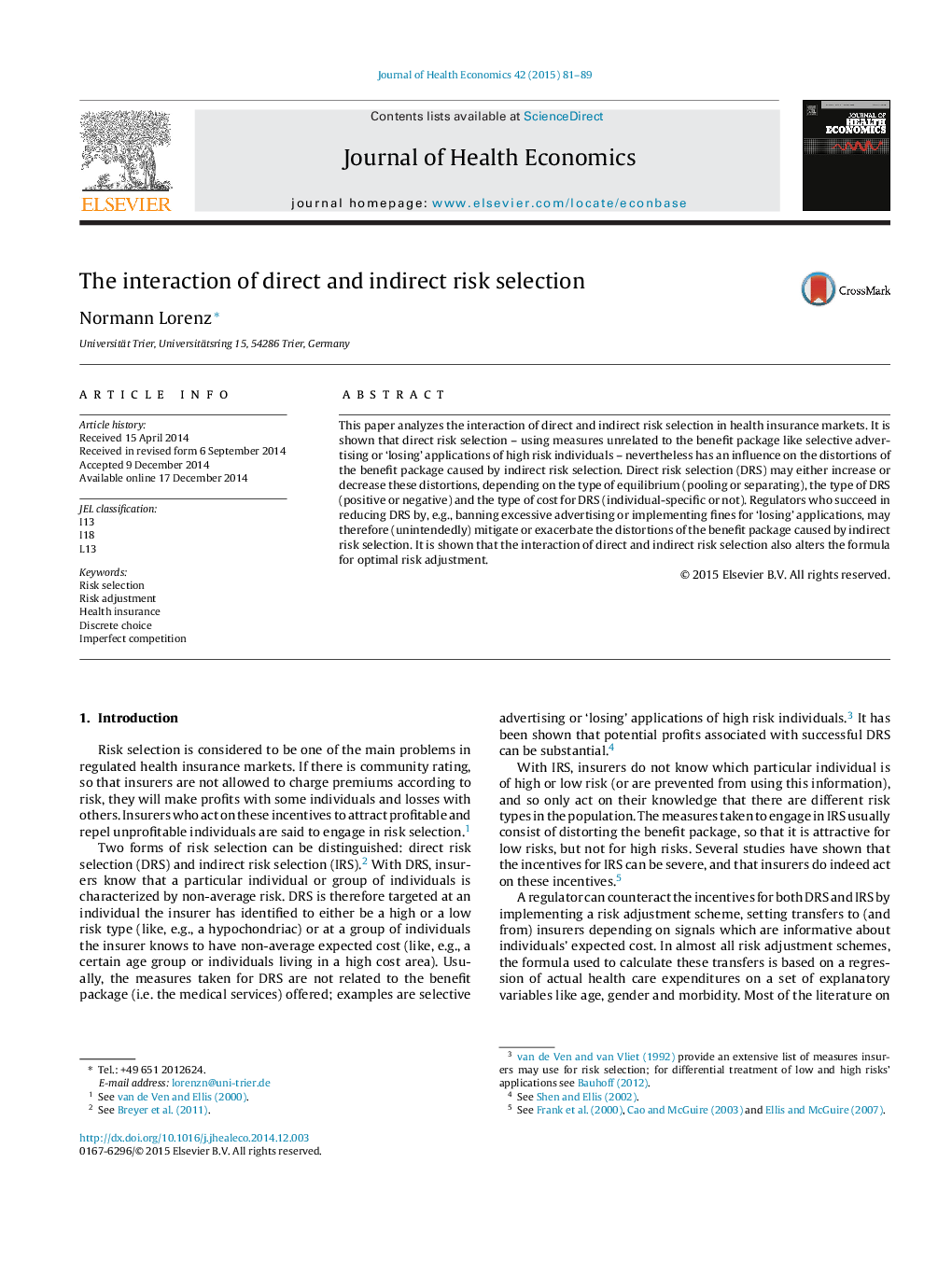| Article ID | Journal | Published Year | Pages | File Type |
|---|---|---|---|---|
| 961800 | Journal of Health Economics | 2015 | 9 Pages |
Abstract
This paper analyzes the interaction of direct and indirect risk selection in health insurance markets. It is shown that direct risk selection - using measures unrelated to the benefit package like selective advertising or 'losing' applications of high risk individuals - nevertheless has an influence on the distortions of the benefit package caused by indirect risk selection. Direct risk selection (DRS) may either increase or decrease these distortions, depending on the type of equilibrium (pooling or separating), the type of DRS (positive or negative) and the type of cost for DRS (individual-specific or not). Regulators who succeed in reducing DRS by, e.g., banning excessive advertising or implementing fines for 'losing' applications, may therefore (unintendedly) mitigate or exacerbate the distortions of the benefit package caused by indirect risk selection. It is shown that the interaction of direct and indirect risk selection also alters the formula for optimal risk adjustment.
Related Topics
Health Sciences
Medicine and Dentistry
Public Health and Health Policy
Authors
Normann Lorenz,
